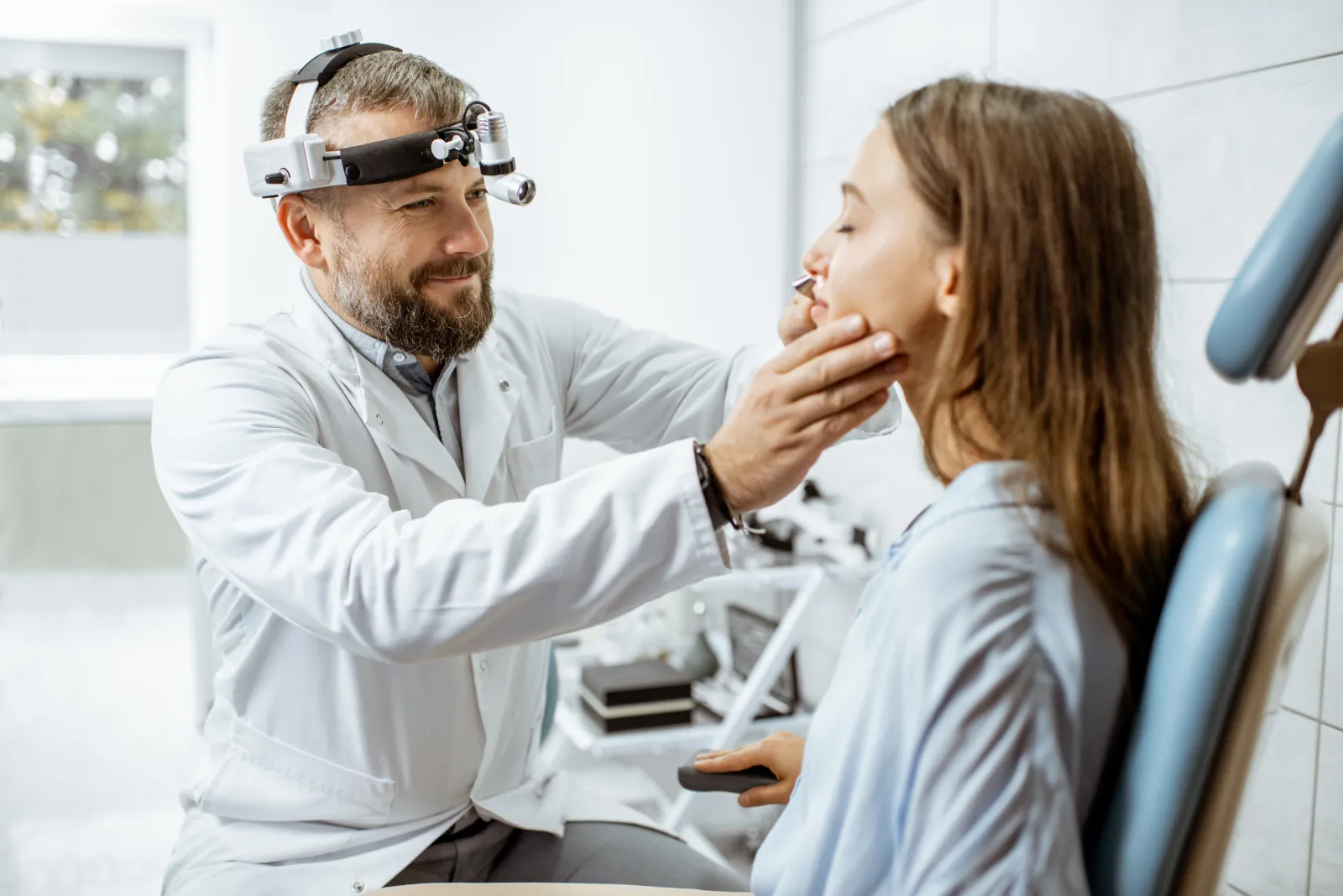If you think about it, noses perform many functions, with breathing being the most obvious. Then, there's always the matter of smell, taste, and protecting the body from germs and allergens. It also has an impact on shaping your appearance. So, when something is out of balance, you can't help but notice. That is, of course, with one exception: a deviated septum.
Research suggests that septal deviation affects around 75% of people, many of whom don't even know it. The condition is so prevalent today that it's the perfect time to address questions and misconceptions about the deviated septum.

What Is a Deviated Septum?
A deviated septum occurs when the cartilage wall between the right and left nostrils, known as the nasal septum, is off-center. It can be a congenital condition or an injury to the nose, causing the septum to shift out of place. Engaging in contact sports, for example, can easily result in nose trauma and subsequent deviation of the nasal septum. The same can be said for an automobile accident, a fall, or a complicated birth.
What Does a Deviated Septum Look Like?
A deviated septum may not be noticeable, especially from the front, if the deviation is minor. There are ways to determine whether you have nasal septum deviation, and the easiest method is to tilt your head back while looking in the mirror. Uneven nostrils or nostrils of two different sizes could indicate a deviation.
Another method of self-diagnosis would be a simple breathing test. Just close one nostril and breathe. Do the same with the other nostril. Did you experience any difficulty breathing on either side? What about both? If that's the case, this would also indicate some deviation.
Though this should go without saying, the true test to determine whether you have a deviated septum would be a visit to your doctor or your local ear, nose, and throat specialist. It's always best to receive a diagnosis from a healthcare professional.
What Are the Deviated Septum Symptoms?
Often, a deviated septum presents no symptoms. Many people are completely unaware of its existence. If the deviation is severe or worsens with age, which is possible, you may experience one or more of the following deviated septum symptoms:
- Nasal congestion
- Nasal pressure
- Difficulty breathing
- Noisy breathing
- Headaches
- Facial pain
- Nosebleeds
- Snoring
- Sleep apnea
- Chronic sinusitis
Depending on the severity of the nasal septum deviation, you may also prefer sleeping on one side because it makes breathing easier. The narrowing of the nasal passage can make breathing difficult. You may also experience dry mouth, as people with more severe deviation tend to breathe through their mouth rather than their nose.
Will I Need Deviated Septum Surgery?
Not necessarily.
The management and treatment of a deviated septum will naturally depend on the severity of the condition. Most of the time, you will not require any treatment at all. This is particularly true when the nasal septum deviation presents few or no symptoms. Medication will often be the first treatment option if the symptoms are mild.
Your doctor or ENT may recommend taking various over-the-counter medications, such as antihistamines, nasal steroid sprays, or nasal decongestants. However, decongestant sprays can cause rebound congestion if used for over three days, so tablets are a better option.
When symptoms are severe and/or frequent, it is time to consider options for deviated septum surgery. Most procedures will be minimally invasive nasal surgeries, the most common being septoplasty. During this outpatient procedure, the surgeon will reshape the contour of the septum by either removing or adding cartilage and bone.
What Is the Recovery Time for Deviated Septum Surgery?
While recovery from septoplasty varies greatly from one individual to the next, the initial healing process can take as little as a week. However, that doesn't mean you can continue with your regular activities. Recovery can take two to three weeks and upwards of three months for the nose and septum to fully recover from the procedure.
During that time, you will want to rest and only resume light activities when the doctor gives you clearance. You may find yourself refraining from more strenuous activities for an entire month. That means no gym, no swimming, no running, and so on. After the surgery, your doctor or surgeon can provide more details.
If you have additional questions about septal deviation and whether septoplasty suits you, the ENT of Georgia South team would happily take your call. Contact us today.

